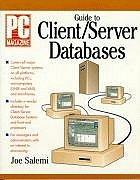Question
Problem 1. What are the arguments for and against representing Boolean values as single bits in memory. (Recall that the C++ bool type is actually
Problem 1. What are the arguments for and against representing Boolean values as single bits in memory. (Recall that the C++ bool type is actually one byte in size despite the fact that a logical true/false can be encoded in one bit.)
Problem 2. Describe the functions performed by a garbage collector. What are the advantages and disadvantages of using a programming language with garbage collection services?
Problem 3. Recall that many programming languages use short circuit evaluation when determining the result of a complex boolean expression involving add/or operations. What are the benefit of using short circuit evaluations? Are there are safety/reliability issues involved? If so, what are they?
Problem 4: Describe how the following programming languages deal with the dangling else issue: C++, Java, Ruby, and Python.
Problem 5: Discuss the differences between name type and structure type equivalence. Explain some potential challenges with implementing structure type equivalence.
Step by Step Solution
There are 3 Steps involved in it
Step: 1

Get Instant Access to Expert-Tailored Solutions
See step-by-step solutions with expert insights and AI powered tools for academic success
Step: 2

Step: 3

Ace Your Homework with AI
Get the answers you need in no time with our AI-driven, step-by-step assistance
Get Started


